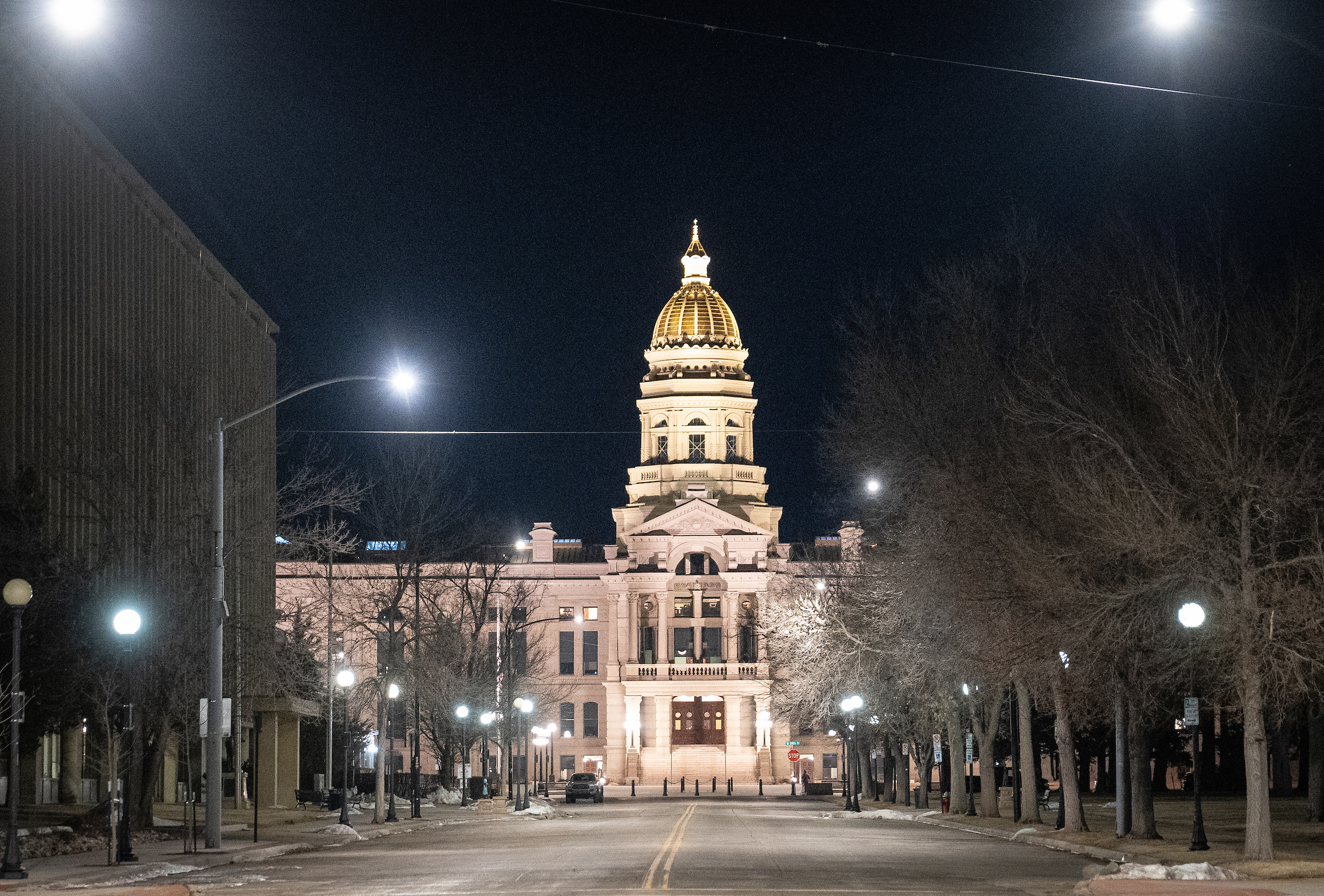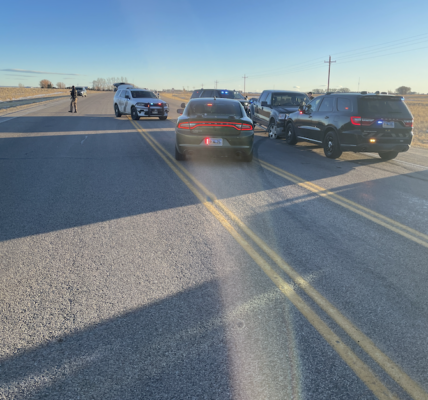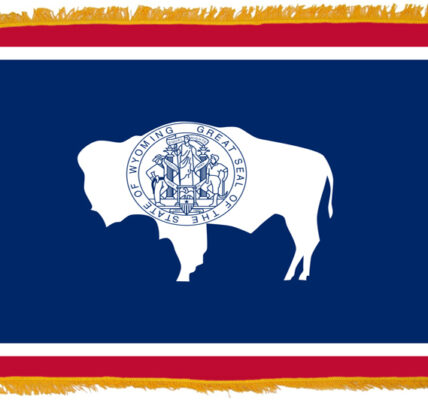
By Hannah Shields
Wyoming Tribune Eagle
Via- Wyoming News Exchange
CHEYENNE — Two bills headed to the Wyoming Legislature’s 2025 general session, sponsored by a Republican legislator, aim to restrict transgender people’s access to female-only spaces and collegiate sports teams.
Rep. Martha Lawley, R-Worland, said it’s time for the Wyoming Legislature to create “uniformity” across the Equality State when it comes to transgender policy.
In an op ed sent out by email Monday announcing the bills, Lawley said Wyoming once led the nation in equal opportunity when it became the first state to grant women the right to vote.
“Now, we can lead again, ensuring our daughters and granddaughters can pursue their dreams with the same sense of fairness and security,” Lawley wrote.
In 2023, Lawley co-sponsored the Student Eligibility in Sports Act, a bill that “prohibits biological male students in grades seven through 12 from participating on female sports teams.”
The bill’s sponsor, Sen. Wendy Schuler, R-Evanston, asked Lawley, who sits on the House Education Committee, to carry the bill through the lower chamber.
“That first sports bill was really about protecting the Title IX lane,” Lawley told the Wyoming Tribune Eagle. “It was not about leaving certain people out, excluding them, because there are many options — and there still are and still will be — many options to accommodate transgender students.”
Lawley’s first bill would amend this act to apply to all grade levels, as well as collegiate sports. Any educational institution that receives public funding would fall under this amendment, Lawley said, which includes the University of Wyoming and community colleges.
Her amendment would also prevent Wyoming sports teams from competing against out-of-state teams with a transgender player. Lawley said this language was added in response to an incident that happened earlier this fall, when the University of Wyoming volleyball team became the third university to pull out of a match against San Jose State University, which reportedly has a transgender player.
Lawley’s second bill, the Protecting Women’s Privacy in Public Spaces Act, prohibits transgender access to what it terms “female spaces,” including bathrooms, locker rooms and correctional facilities. Women bore the brunt of the transgender movement, she said, when transgender individuals were allowed into private female spaces, such as locker rooms and bathrooms, and to play in women-only sports.
“This is not about a statement against the transgender movement,” Lawley said. “Its goal isn’t to make a point. It is really trying to solve real issues.”
The representative said her intent is to strike a balance between protecting biological women while creating alternative avenues for the transgender community.
In her second bill, Lawley includes a provision that would allow schools to designate bathrooms and locker rooms for transgender students.
“I believe we can, in Wyoming, balance these different interests,” Lawley said. “But to me, a balance is never going to be to completely take over someone else’s lane or someone else’s space. So, I hope this bill strikes that balance.”
When Gov. Mark Gordon allowed the Student Eligibility in Sports Act to go into law without his signature in 2023, he criticized it as “overly draconian” and discriminatory in his four-page letter to the secretary of state.
While he acknowledged the intent of the legislation was “to protect the integrity and fairness of women’s sports,” he also believed it sent a “harmful message” to the transgender community, saying these individuals deserve the same opportunities as others.
In the wake of the bill becoming law, one family whose child was directly impacted nearly filed a lawsuit against the state, said Wyoming Equality Executive Director Sara Burlingame. Plans to litigate fell through, however, when the high school student found an opportunity to graduate early, she said.
“We understood what a high price it was,” Burlingame said. “We don’t need more martyrs in LGBTQ advocacy; we need more healthy living.”
Transgender students, like everyone else, are just trying to survive high school, Burlingame said, and their parents are “in a lot of despair.”
She said transgender students are likely to experience higher rates of sexual, physical and emotional abuse. A 2021 survey published in the National Library of Medicine found that 73% of transgender youth reported psychological abuse, 39% reported physical abuse, and 19% reported sexual abuse.
“Who needs to be protected? Trans kids,” Burlingame said. “It’s kind of a bizarro world where we’re saying, ‘How can we protect ourselves against these youth who are so clearly targeted and bullied themselves?’” Commenting on Lawley’s bill to protect “female spaces,” she said it’s inaccurate to think that creating a separate transgender bathroom or locker room constitutes equality.
“I could say all day long, ‘I want to keep you away from this drinking fountain or away from this bathroom,’ but you just have to trust my heart that I don’t mean for that to discriminate against you,” Burlingame said. “It’s just a reality that it does, and I think we can afford to be clear-eyed about that.”
If Lawley’s bills pass the Legislature next year, which Burlingame anticipates given the new, more conservative makeup of the incoming governing body, she said it would likely result in more transgender families leaving the state.
“They will leave their jobs, leave their family, leave their home, pick up and try to move to a place where their kid isn’t targeted by the government,” Burlingame said. “And if that doesn’t break your heart, I don’t know what will.”





